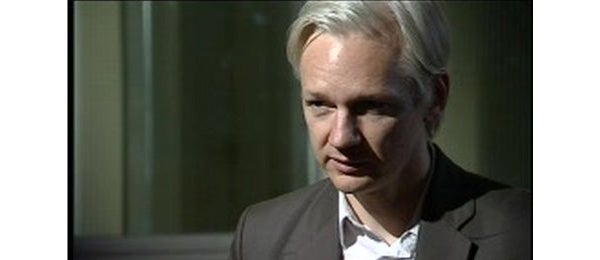Cambridge Analytica: Assange offers testimony to committee, without being invited

This past week the attention of the technology world has been consumed by Facebook’s Cambridge Analytica scandal, and Wikileaks founder Julian Assange has graciously said that he’ll testify in front of the UK’s ‘fake news committee’.
There’s just one problem though, and that’s that the committee — or to use its full name, the Digital, Culture, Media and Sport Committee — never actually invited Assange to attend.
Mr Assange has offered to appear before the DCMS Committee, but no formal invitation has been issued for him to attend.
— Digital, Culture, Media and Sport Committee (@CommonsCMS) March 20, 2018
Assange originally said that he’d accepted a “request” to attend via video link yesterday, also via Twitter.
I have accepted a request by the select committee of the UK parliament @CommonsCMS to give evidence, via video link, about Cambridge Analytica, and other matters, later this month. pic.twitter.com/OUSt0fBETQ
— #FreeAssange! (tweets by campaign)⌛ (@JulianAssange) March 20, 2018
However, the official WikiLeaks Twitter account fired back with the dates on which they claim that Assange was approached to testify before the committee.
The Committee approached Mr. Assange on the 28th of February "The members would like to invite you", then on the 5th of March "I wonder whether you have heard anything back from Mr. Assange", then proposed the 28th as the date for the video link, to which Mr. Assange agreed.
— WikiLeaks (@wikileaks) March 20, 2018
The DCMS has extended invitations for relevant parties to attend the committee to present evidence. Yesterday the committee’s chair, Damian Collins, called on Facebook CEO Mark Zuckerberg speak about this “catastrophic failure of process” that has occurred.
Given that this is a scandal involving Facebook and Cambridge Analytica, it’s not surprising that Assange hasn’t been invited to give evidence, but that hasn’t stopped the Wikileaks founder from making his offer.
Had he given evidence, this would have been done via video link from the Ecuadorian embassy, where he has been claiming asylum since 2010 after having been accused of rape in Sweden.
Sweden dropped the rape investigation last year, but the metropolitan Police say they’d still arrest Assange if he left the embassy.
Do you think Assange has anything to contribute to the current scandal? Let us know @TrustedReviews.


